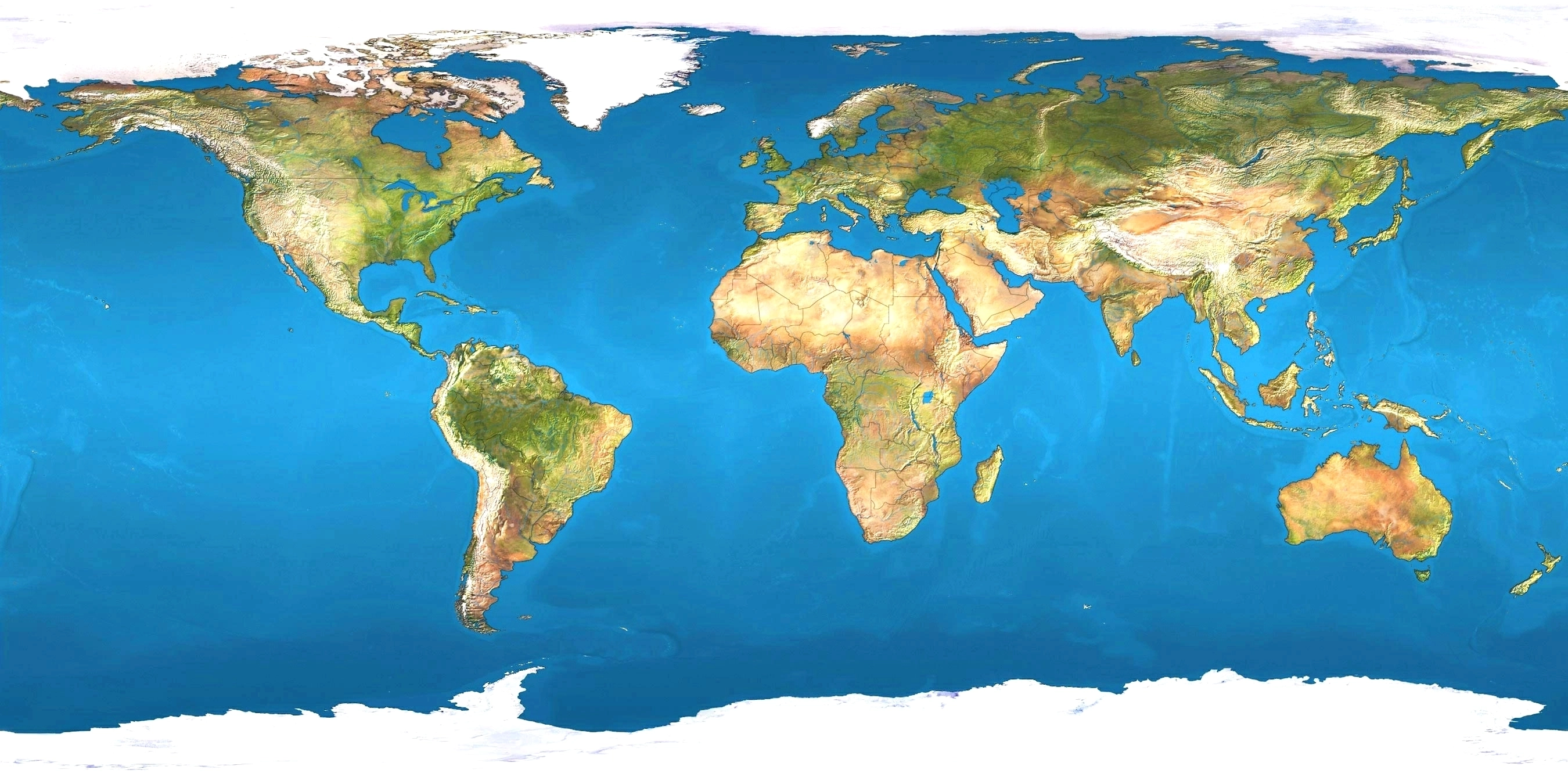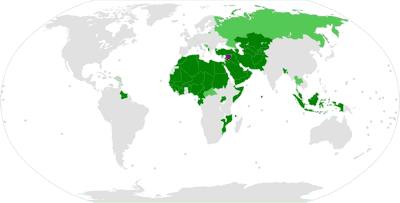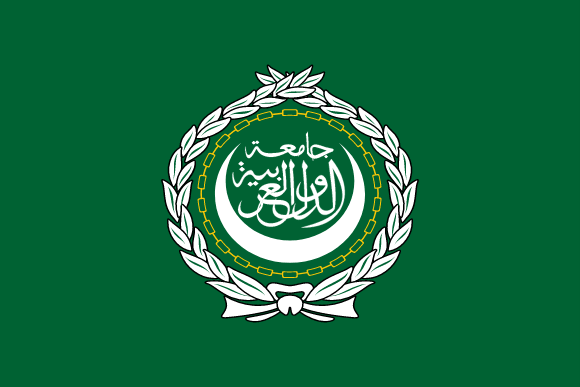
suspended members
Egypt was suspended from the Arab League on 26 March 1979 due to the Egypt–Israel peace treaty, with the League's headquarters moving from Cairo to Tunis, Tunisia. In 1987, Arab League states restored diplomatic relations with Egypt, the country was readmitted to the League in May 1989 and the League's headquarters were moved back to Cairo in September 1990.
On 20 September 2011, the Arab Parliament recommended suspension of Syria and Yemen over persistent reports of disproportionate violence against regime opponents and activists during the Arab Spring.
Libya was suspended on 22 February 2011, following the outbreak of the First Libyan Civil War. The Arab League voted to restore Libya's membership on 27 August 2011 by accrediting a representative of the National Transitional Council, which was the partially recognised interim government of the country.
Syria was suspended on 16 November 2011 in the aftermath of the outbreak of the Syrian Civil War. On 6 March 2013, the Arab League gave the Syrian National Coalition Syria's seat in the Arab League. On 9 March 2014, secretary general Nabil Elaraby stated that Syria's seat would remain vacant until the opposition completes the formation of its institutions.
In 2021, the Arab League initiated a process of normalisation between Syria and other Arab nations. On 7 May 2023, at the meeting of the Council of the Arab League in Cairo, it was agreed to reinstate Syria's membership.
الجامعة العربية
the arab league
The Arab League (Arabic: الجامعة العربية), al-Jāmiʿa al-ʻArabiyya is a regional organization located in Northern Africa, Western Africa, Eastern Africa, and Western Asia.
The league was formed in Cairo on 22 March 1945 initially with six members: Egypt, Iraq, Transjordan, Lebanon, Saudi Arabia, and Syria. Yemen joined as a member on 5 May 1945.
The Arab League has 22 members, including three African countries among the largest by area (Sudan, Algeria and Libya) and the largest country in Western Asia (Saudi Arabia). Syria's participation has been suspended since November 2011.
The League's main goal is to "draw closer the relations between member states and co-ordinate collaboration between them, to safeguard their independence and sovereignty, and to consider in a general way the affairs and interests of the Arab countries".
علم منظمة التعاون الإسلامي
organisation of islamic cooperation
Founded in 1969, it is the second largest organization in the world, after the United Nations. The flag consists of a globe inside a green crescent centered on a white background.
The black Kaaba at the center of the globe symbolizes the geographical heart of Islam.
It has members on four continents.

It has a membership of 57 states, 47 of which are Muslim majority countries.
It is the collective voice of the Muslim world and endeavors to safeguard and protect the interests of the Muslim world in the spirit of promoting international peace and harmony.
Countries with significant Muslim populations, such as Russia and Thailand, sit as Observer States.
non-member states
Chad is the only country (where Arabic is an official language) to remain outside of the League.
In Eritrea, Malta, and South Sudan (where Arabic is not an official language) a dialect of Arabic is spoken by portions of the populations.
Additionally, there are two other Arabic-speaking states with limited recognition – Sahrawi Arab Democratic Republic and Somaliland – but their disputed status, being claimed by League members Morocco and Somalia respectively, makes their membership unlikely for the foreseeable future.




































